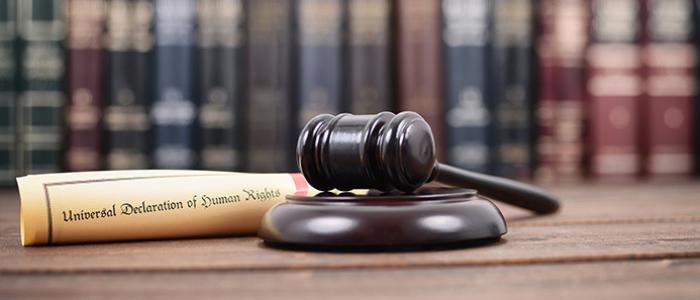
6.13 What are fundamental human rights? Should everyone have the right to practise any religion? How far should I adapt to minorities?
Although Jesus wants us to live life to the full and to do so in all freedom (Lk 4:18), there is no such thing as absolute freedom. Also other people have rights, and sometimes these rights clash. Then it is important to know that there are certain fundamental rights. These include the right to life, work, freedom from slavery, freedom of opinion… and of religion!
Only in true freedom can you choose to respond to God’s love with love. No one can be coerced into believing something, nor can someone be forced to love. I can hope and desire for you to see how faith in Jesus can change your life for the better, but you should be free to choose otherwise. Regardless of their religion or convictions, minorities have the same fundamental rights as everyone. But whoever abuses their freedom needs to be stopped.
What is the relationship of the Catholic Church with the Jewish people?
The Catholic Church recognizes a particular link with the Jewish people in the fact that God chose them before all others to receive his Word. To the Jewish people belong “the sonship, the glory, the covenants, the giving of the law, the worship, the promises, and the patriarchs; and of their race, according to the flesh, is the Christ” (Romans 9:4, 5). The Jewish faith, unlike other non-Christian religions, is already a response to the revelation of God in the Old Covenant [CCCC 169].
What is the bond that exists between the Catholic Church and non-Christian religions?
There is a bond between all peoples which comes especially from the common origin and end of the entire human race. The Catholic Church recognizes that whatever is good or true in other religions comes from God and is a reflection of his truth. As such it can prepare for the acceptance of the Gospel and act as a stimulus toward the unity of humanity in the Church of Christ [CCCC 170].
What is the meaning of the affirmation “Outside the Church there is no salvation”?
This means that all salvation comes from Christ, the Head, through the Church which is his body. Hence they cannot be saved who, knowing the Church as founded by Christ and necessary for salvation, would refuse to enter her or remain in her. At the same time, thanks to Christ and to his Church, those who through no fault of their own do not know the Gospel of Christ and his Church but sincerely seek God and, moved by grace, try to do his will as it is known through the dictates of conscience can attain eternal salvation [CCCC 171].
The Universal Declaration of Human Rights… was the outcome of a convergence of different religious and cultural traditions, all of them motivated by the common desire to place the human person at the heart of institutions, laws and the workings of society, and to consider the human person essential for the world of culture, religion and science… They are based on the natural law inscribed on human hearts and present in different cultures and civilizations… This great variety of viewpoints must not be allowed to obscure the fact that not only rights are universal, but so too is the human person, the subject of those rights [Pope Benedict XVI, to the General Assembly of the UN, 18 April 2018].





